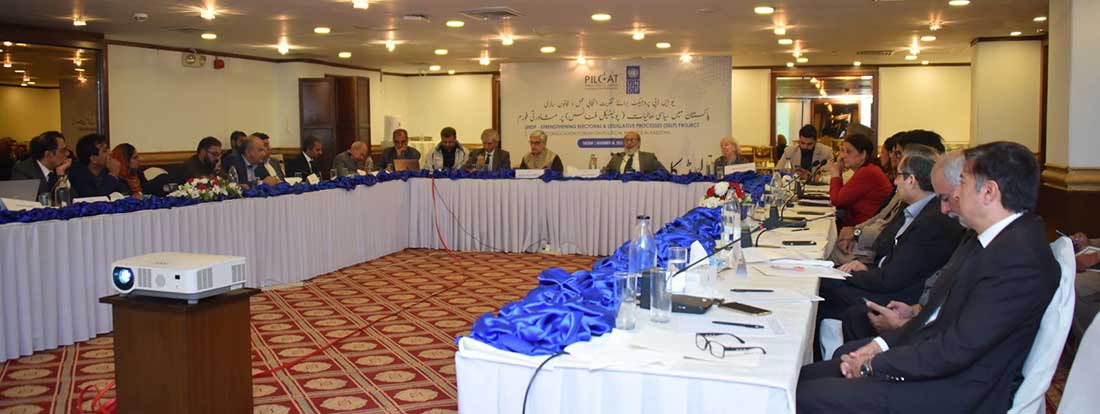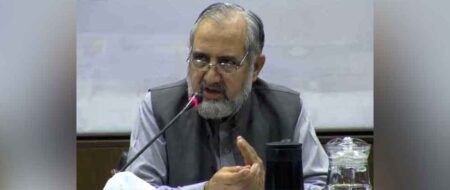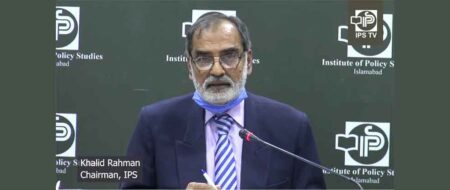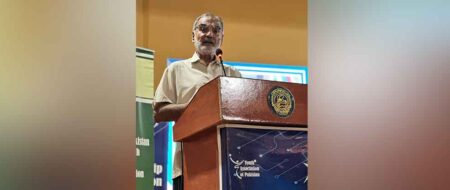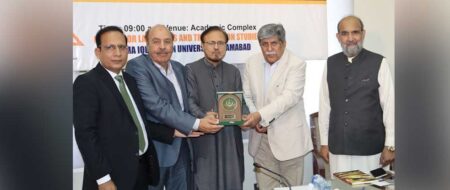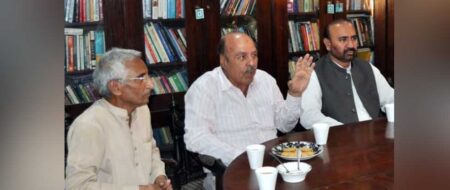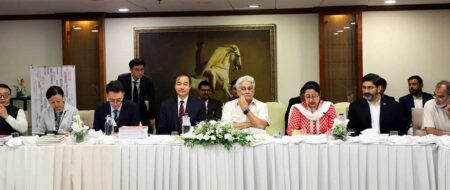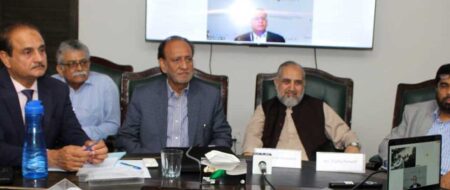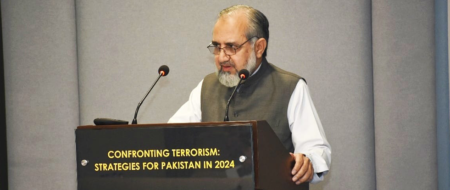Reforms mandatory as shortcomings in Pakistan’s electoral system make it inherently vulnerable: Chairman IPS
Reforming Pakistan’s electoral system stands as an important step towards fostering a more accountable, transparent, and genuinely representative electoral framework. Pakistan’s electoral system has to be reformed to address problems arising from the ambiguity and lack of transparency surrounding campaign spending, the proliferation of political parties, and the system of electables.
This was opined by Chairman IPS Khalid Rahman while addressing the ‘Consultation Forum on Political Finance in Pakistan’, organized by PILDAT (Pakistan Institute of Legislative Development and Transparency), in collaboration with the UNDP Pakistan, under its Strengthening Electoral and & Legislative Processes, on November 28, 2023.
Khalid Rahman highlighted that the increased limits for candidate expenditure in the national assembly have facilitated as well as constrained the electoral campaign process. It is good in the sense that the previous limit was unrealistically low. But those well aware of the nuances of elections and election campaigns know that the political spending required is not a matter of millions but billions. In that sense, the limit is still unrealistic. As an example, he said that there are more than 250 polling stations in one constituency and the average expenditure in one constituency can amount to around PKR 20 million, way more than what is allowed for the whole election campaign.
He added that this increases the chances of lies and false expenditure statements submitted by candidates. And, in that case, the question arises how would they promote integrity and loyalty in Parliament if elected based on a false statement? This is a significant issue, and there ought to be clear guidelines and restrictions on the amount of money that may be spent on election campaigns.
He further underscored that the issue lies in the electoral system that only allows electables to succeed. And as money is a major qualification in electability, it therefore makes the system inherently vulnerable. To end electability, there is a need to focus on the entire system. He suggested that the upcoming parliament should make it a priority to address these issues and forge a way to introduce proportionate representation.
He further said that the ease of creating a political party, characterized by a nominal fee of two lac rupee and 2000 membership requirements, has resulted in a proliferation of parties. According to Election Commission data, there are around 175 political parties in Pakistan. Although this promotes diversity, it puts an excessive amount of management burden on the Election Commission. He suggested reevaluating these conditions and ensuring that only parties who are genuinely committed and sustainable are formed. Rationalizing the establishment process of new parties would enhance the capacity of the Election Commission, he said.
Stressing the importance of transparency in political spending, he said that addressing loopholes in the existing system that allow candidates to disclaim knowledge of expenditures made on their behalf by others is pivotal.
He acknowledged the utilization of information technology (IT) in the election process by the Election Commission. He proposed that instead of first printing and then making the expenditure records accessible to the public, the process can be made available to the public via a digital platform, granting them real-time access.


